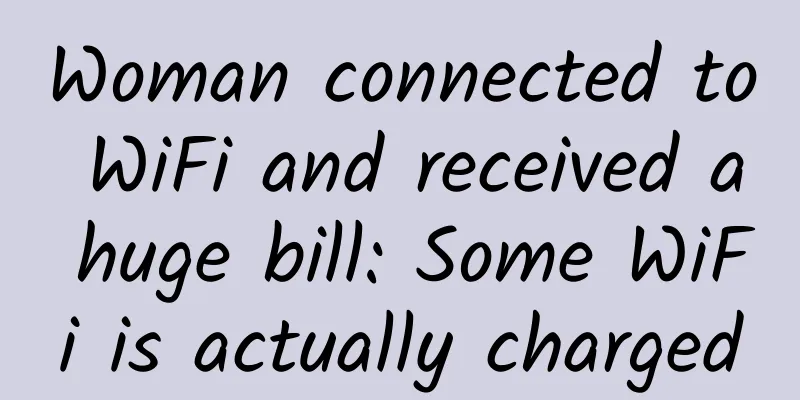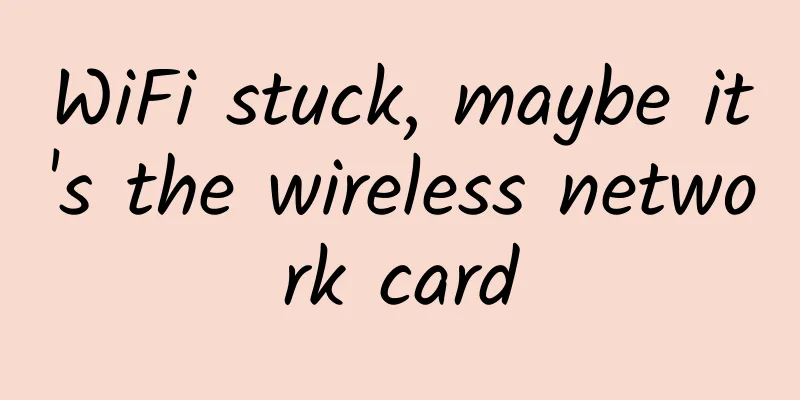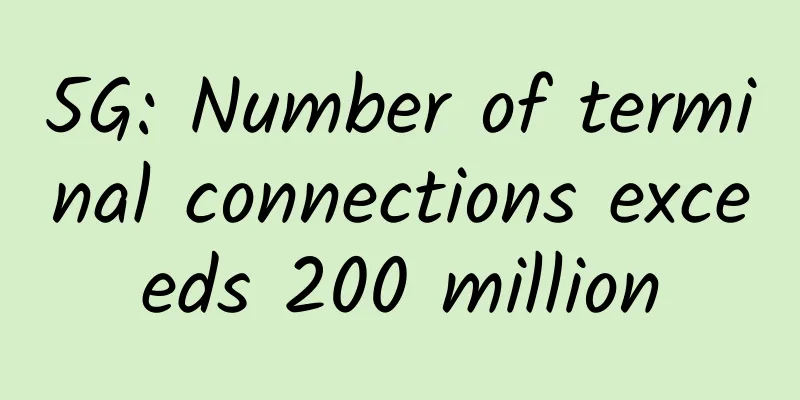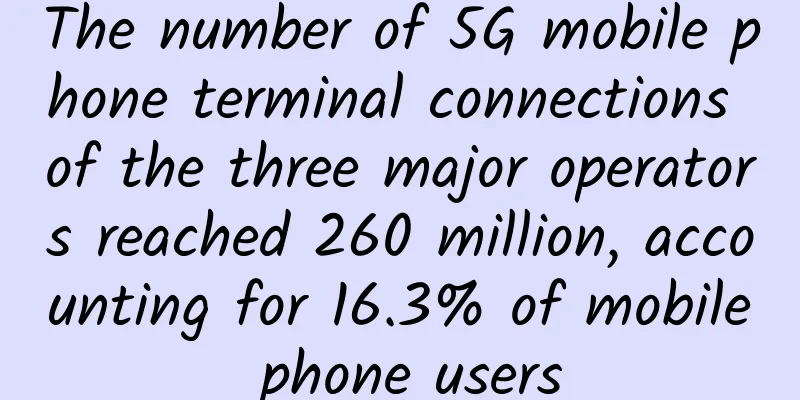Woman connected to WiFi and received a huge bill: Some WiFi is actually charged

|
Nowadays, surfing the Internet with mobile terminals such as mobile phones and tablets has become one of the daily leisure and entertainment methods for many people. Whether visiting a friend's house or in a public place, people will habitually search for Wi-Fi signals first. However, you may not know that some Wi-Fi is actually charged. I received a huge phone bill after connecting my phone to Wi-Fi to watch TV series. Ms. Li from Xiaoshan, Zhejiang, was recently hospitalized due to illness. One day, while lying on the hospital bed and playing with her husband's mobile phone, she found that China Telecom ChinaNet's Wi-Fi signal was strong. After entering the mobile phone number as prompted, she received a password, but no fee reminder. After entering the password, she started to watch TV series online. A few days later, Ms. Li's husband received a payment text message, and they were shocked by the "huge bill". After consulting over the phone, they were told that because they had used Wi-Fi for more than 7 hours and generated 6G of traffic, they had to pay 1,044 yuan. No notification of charges when connecting Ms. Li was very sure that she was connected to Wi-Fi when watching TV series and turned off the mobile data flow. Why did she still spend so much money? Telecom customer service staff said that this price was already discounted. The phone bill showed that the Internet and data communication fees in November were 1954.56 yuan, with a discount of 954.56 yuan, and the actual amount to be paid was 1000 yuan. Adding the monthly basic fee, voice call fees, etc., the total amount to be paid was 1044 yuan. This explanation made Ms. Li very angry: "Isn't Wi-Fi free? If there is a charge, it should be notified at the beginning of the connection. Why wait until the money is collected to inform you? Isn't this deception?" Thousand-yuan bills dropped to tens of yuan The reporter randomly interviewed some telecom mobile phone users, and the vast majority of them had never used ChinaNet, nor did they know that ChinaNet was a paid Wi-Fi. Only one interviewee said that he had used it two years ago and was impressed by it because it was expensive. The salesperson at the Telecom business hall said that the usage records of Ms. Li's husband's mobile phone confirmed that he used 6.3G of traffic for 7 hours. They can reduce the cost for Ms. Li by using a traffic package. The charge standard is 100 yuan for 3G traffic, 6G is 200 yuan, and 0.3G is 20 yuan, a total of 220 yuan. Ms. Li was not satisfied with this handling method. She insisted that it should be calculated by time, because Telecom's time-based billing is cheaper. ***, at Ms. Li's insistence, the telecommunications company charged her 12.6 yuan for Internet access, based on the time-based charging method of 0.3 cents per minute. In this way, the Internet access fee increased from more than 1,900 yuan at the beginning, to 1,000 yuan, and then to 220 yuan, and *** only charged 12.6 yuan. How to use China Telecom's ChinaNet? The reporter used a China Telecom iPhone to experience that after connecting to ChinaNet's Wi-Fi, a login link popped up, with three login methods: mobile phone account login, WiFi time card login, and broadband account login. After selecting mobile phone account login, you will receive a password, which you can simply fill out to connect to the network. During the entire process of logging in and using ChinaNet, there was no reminder of traffic charges or how the fees were charged. After being prompted by the telecommunications staff, the reporter clicked on the small "Frequently Asked Questions" column on the login interface and found a question about whether there would be any charges. The answer was yes. The staff said that when using China Telecom ChinaNet, the system will first deduct the remaining package traffic in the personal account, and the excess will be charged at the rate of 0.3 cents per megabyte. This is why Ms. Li spent more than 6G of traffic and incurred a fee of more than 1,900 yuan. "Previously, there was a method that charged based on duration, 3 cents per minute, but it is no longer promoted. In the 4G era, we promote billing based on traffic flow." The staff suggested that users should not use ChinaNet easily. China Mobile and China Unicom also have paid Wi-Fi China Mobile staff said that China Mobile now has two types of paid Wi-Fi, CMCC and CMCC-WEB, with monthly packages of 5 yuan for 300M and 10 yuan for 700M. However, if you do not subscribe to the monthly package or use these two types of Wi-Fi after exceeding the package, you will be charged 0.1 cent per megabyte. The cellular data rate is 0.29 yuan per megabyte. China Unicom staff said that China Unicom's paid Wi-Fi has been discontinued and can no longer be activated. Those who have previously activated related services and have remaining traffic can still use it. Using China Unicom's cellular data is 0.3 cents per megabyte. In addition, each operator's paid Wi-Fi is only available to its own mobile phone customers. For example, if a mobile user wants to use telecom's paid WiFi, it is not possible. |
<<: Three tips for data center network maintenance
Recommend
The New Year season is coming and the hidden power of routers is unlocked
Wireless routers have entered thousands of househ...
Can 6G technology directly skip 5G technology?
1G→5G: There is precedent for skipping As far as ...
Soul-searching Question 9: What are the unknown secrets of the bizarre online world? (Must-ask questions for online interviews)
You are more powerful than Zhuge Liang. You have ...
Operating system: Introduction to SFTP related knowledge
Today I will share with you some knowledge about ...
Why do we need RPC when we have HTTP?
This article briefly introduces the two forms of ...
5G and Edge AI: Solving Traffic Management Problems
The way we commute may have changed over time, bu...
In the digital economy era, operators focus on technological innovation to optimize and upgrade digital infrastructure
The State Council recently issued the "14th ...
Kvmla's 10th anniversary: 50% off for annual VPS and 20% off for monthly VPS, old users get 100 off for 500 RMB, 15% off for Singapore/Japan dedicated servers
Kvmla has not released promotional information fo...
Ruishu Information AI team won the A-level championship in cybersecurity at the "3rd China Artificial Intelligence Competition"
Recently, at the "3rd China Artificial Intel...
Security monitoring and observability capability building based on system operation experience
Observability refers to the ability to measure th...
With the advent of the 5G era, will the divorce rate drop?
01 The divorce rate remains high during the epide...
Don’t say that 5G is just faster than 4G. Don’t you realize the importance of 5G?
Since the three major operators officially announ...
Akamai launches first NFT artwork to visualize Internet activity
May 25, 2022 - Akamai Technologies, Inc. (NASDAQ:...
edgeNAT Double Holiday Promotion: VPS special price starting from 199 yuan per year, 30% off for regular monthly packages and 40% off for annual packages
edgeNAT has just released a promotional event dur...
Cloud-based assembly line, one-click construction is no longer a dream!
In December, the Software Development Cloud launc...









![[5G Encyclopedia] The mysterious relationship between parameter sets and numerology](/upload/images/67eb9d0a367bb.webp)